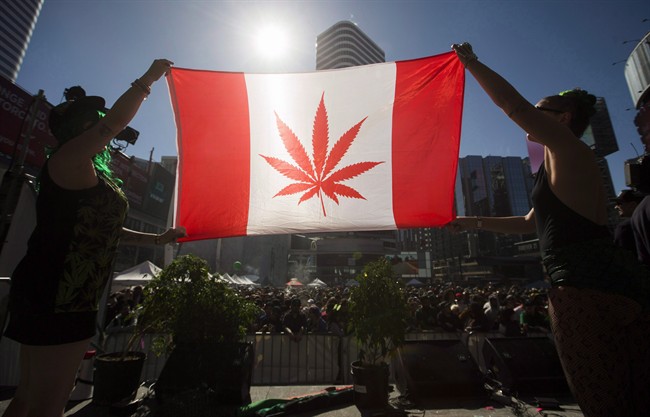While London’s police Chief is reminding people that marijuana is still illegal, organizers of a 4/20 rally at Victoria Park this Thursday are hoping officers will take a relaxed approach to enforcement during their annual gathering.

“We’re hoping that the London Police Service will follow the same strategy as last year, and that they effectively ignored the gathering and allowed us to have our event in peace,” said organizer Eric Shepperd, who added there were virtually no police to be seen in 2016.
Last week, the Liberal government tabled its legislation for marijuana legalization in the House of Commons, in hopes that it’ll come into effect on July 1, 2018.
“This year is going to be cause for something of celebration, but of course, we do need to dampen that celebration by recognizing that these regulations are not perfect. They are far from perfect in fact.”
Shepperd says the framework is a “step in the right direction,” but he’s worried the penalties are too harsh.
Shepperd adds that impaired driving will be tough to crack down on, because there’s no objective way of testing for cannabis impairment.
Police chief John Pare echoed similar worry about testing for drug impairment, pointing out that more officers will need more robust impairment-recognition training, and that the technology and science for testing hasn’t caught up.
He added that although marijuana legislation has been tabled, it hasn’t yet been put into effect.
“Marijuana remains a controlled substance, and the changes in legislation have not occurred. So the laws are still on the books, and so we will continue to enforce them.”
April 20 is traditionally associated with the celebration of all things cannabis, and proponents of marijuana legalization in London will gather at Victoria Park for a rally at 4:20 p.m.
Shepperd says it’s a place for meaningful conversation about the legalization process, and he’s urging people to write their members of Parliament with feedback and criticisms about regulations.
While the federal government has outlined a broad array of rules for things like how old you’ll have to be to use the drug, and how many plants can be grown inside a home, it’s up to individual provinces, territories, and municipalities to tailor rules for their own jurisdictions about licensing, distribution, and retail sales.
According to London’s bylaw officer Orest Katolyk, the city is waiting on word from the province before creating its own marijuana-related rules.








Comments